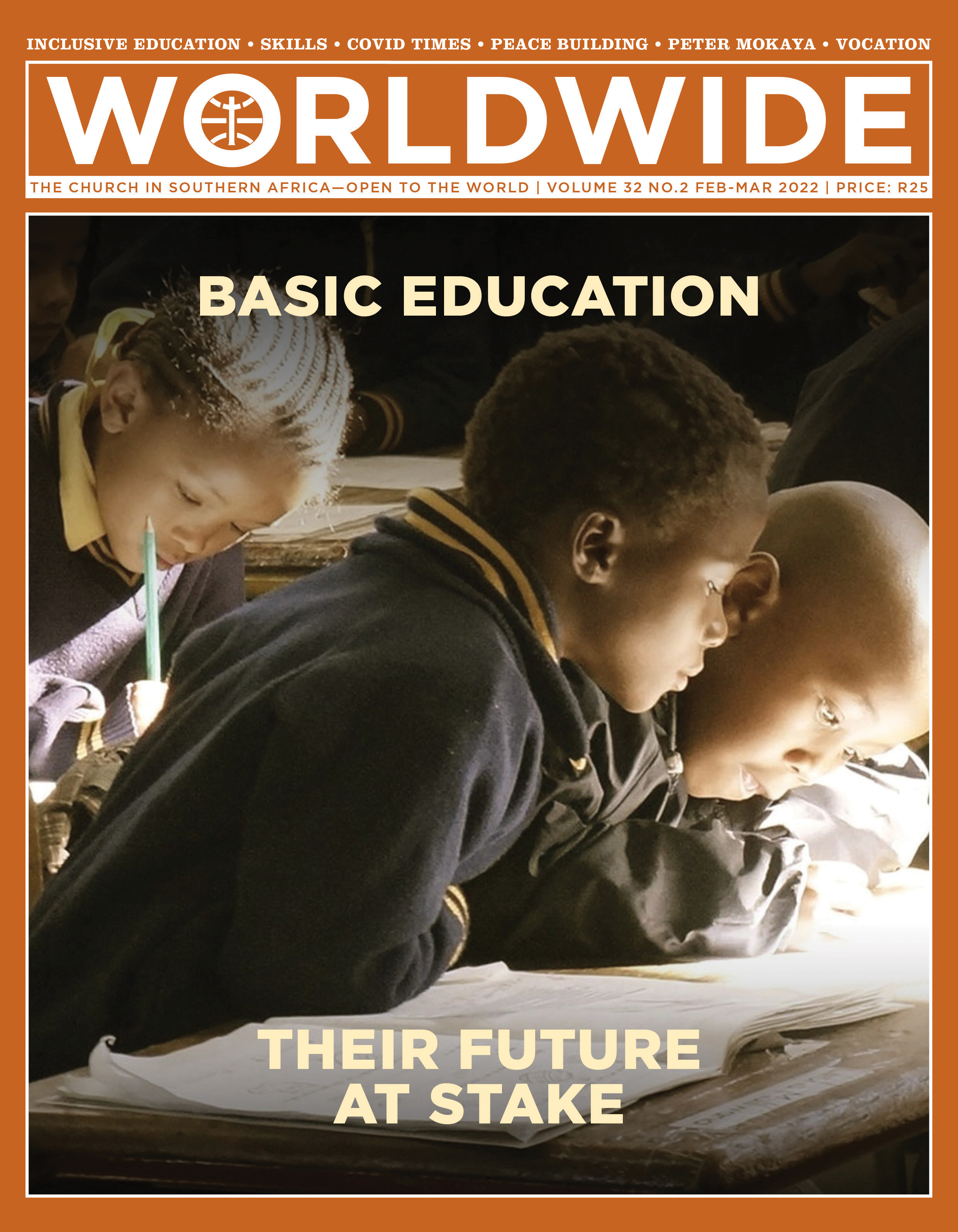
Basic Education Their Future At Stake
The front cover picture was certainly not taken during Covid times. We do not know its exact location, but it could be from any particular school in rural South Africa. What indeed the image of these children reflects is their eagerness for learning and doing it together. Their minds are surely full of dreams; their desires for a bright future cannot be frustrated. The task of offering them an inclusive and integral quality education can look gigantic, but each one’s contribution can make the miracle happen.
PROFILE • excellence
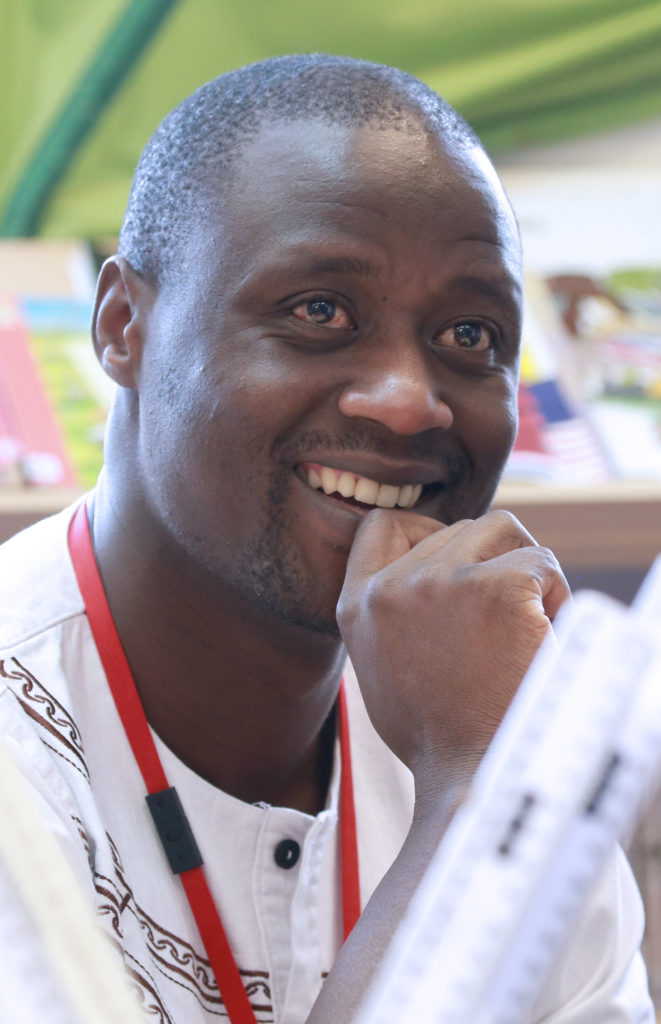
Educate the Future Generation to be Co-Creators
Brother Peter Mokaya Tabichi, a Kenyan Franciscan friar, has turned around the lives of the pupils and the school itself through innovative teaching. This is the achievement of the recipient of the 2019 Global Teacher Prize
BY Marian Pallister | Chair of Pax Christi, Scotland
IF WE had not realised it before the COVID pandemic, the challenges of the past two years have thrown into sharp relief the disparity in the education experience offered to children from different backgrounds. Facilities, resources, the quality of teaching—the rule of thumb is that the poorer the area, the poorer these will be, all exacerbated by the pandemic.
A United Nations (UN) policy briefing on education during the pandemic and beyond says: “The COVID-19 pandemic has created the largest disruption of education systems in history, affecting nearly 1.6 billion learners in more than 190 countries and all continents.”
It adds that as the financial strains of the pandemic increase and overseas aid programmes are cut, financing education could become even worse and the gap could grow wider between rich and poor. To bridge the gap that existed pre-pandemic and has grown wider, the UN hopes that some of the innovations used to support education and training during the COVID crisis will be taken forward to deliver quality education to all in the future, leaving no one behind.
Innovative teaching
That policy briefing says, “We have also been reminded of the essential role of teachers”, and there is no denying that excellent teachers can be found inspiring children in the poorest of schools. That was affirmed when the Nobel Prize for teaching—the Global Teacher Prize—went in 2019 to Peter Mokaya Tabichi. Br Peter is a Franciscan friar who teaches science and maths at Keriko Mixed Day Secondary School in Pwani Village, in Kenya’s Nakuru County. Before and during the pandemic, Br Peter has been employing the kind of innovative teaching that must surely meet those hopes of the UN officials.
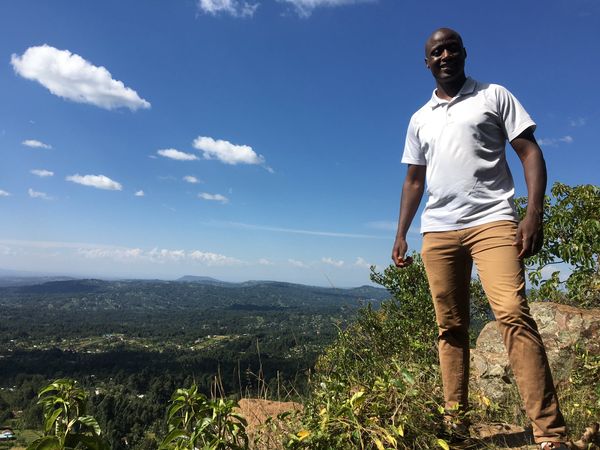
Credit: Brother Peter Mokaya.
New African magazine nominated Tabichi as one of the top 100 most influential Africans in 2019. If they revisit what he is doing now, they might place him at the very top of the list.
Yet if you met this man on his way to school, riding a motorbike that has seen much better days, you wouldn’t easily place him on a podium in the United Arab Emirates impressing an international audience as he received his Global Teacher Prize. You would not imagine him making an impression in the US State House or at the UN in New York. Yet he has been there and done that and continues to be influential despite the challenges of the pandemic.
Talking with this gentle, thoughtful Franciscan, it is much easier to envisage him in the classroom, or working together with children and parents in the inspirational clubs he has initiated. These are the backdrop to pupils achieving their own moment in the spotlight, featuring in local media and even on YouTube. This is a man who has guided his pupils’ families throughout the pandemic—advising them on everything from how to engage with their children during lockdown to how to grow food in a sustainable way that will support them even during the third drought in a row. All this and he is still to reach his 40th birthday.
Overcoming challenges
Peter Mokaya Tabichi was born in Nyamira County in Kenya—known in 1982, the year of his birth, as Nyanza Province. It is an area to the east of where he now teaches science and mathematics, and is a more prosperous countryside where bananas and tea are grown. His father, uncles and cousins were teachers and he willingly followed in their footsteps, his faith leading him to take Holy Orders because he wanted to care for others.
Prioritise education and give it the support it requires
He first taught in a well-off private school. His beliefs guided him instead to Keriko—a school that had so little that many in the ‘developed’ world might have wondered if this could be a school at all. A school, however, that would be recognised by pupils, parents and teachers throughout Africa as the norm. There he found children who could not concentrate on lessons because they were hungry, their families unable to afford breakfast. Around 95% of pupils are living in poverty and some 30% either are orphans or from one-parent families. Some walk 7 km to school on difficult tracks.
These challenges will be familiar to teachers throughout Africa and many parts of the world. How to address those challenges is another matter entirely, but Br Peter has turned around the lives of the pupils and the school itself. He says that today, despite the pandemic, the fortunes of the Keriko School and the private school where he previously taught have been reversed.
How? No miracles have happened—indeed, the pandemic has made the families’ financial situation worse. He admits, “The parents are struggling to pay school fees, so sometimes there is low attendance.”
A Kenyan government vaccination programme has helped, but the teaching team at Keriko have found more girls staying at home, early marriages taking place, and teenage pregnancies halting girls’ school careers. A factor that teachers in all countries may recognise after lockdown is that there has been “a level of indiscipline we haven’t seen before”. He added, “When children came back after lockdown it was like they wanted freedom, so it’s hard for us to give them support—but as educators that is our role, to be creative and supportive.”
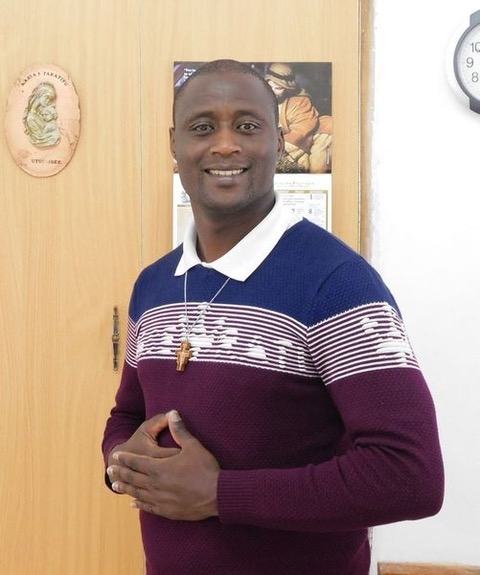
Supporter of gender equity
“Creative’ could be Br Peter’s middle name. Before the pandemic, he had set up the Talent Nurturing Club, a science club and a peace club. In 2018, Keriko equalled the best schools in the country at the Kenya Science and Engineering Fair, with his students showcasing a device they had invented to help blind people measure objects. In 2019, the Mathematical Science team qualified for the INTEL International Science and Engineering Fair in Arizona, USA. There was also an award from the Royal Society of Chemistry for an electricity-generating project using local plant life. A girl who worked on that is now in America doing a science degree—and getting top grades. If only we all had a Br Peter teaching us science!
Some of these projects were halted during the pandemic, but Br Peter says lockdown came with a positive side in that the teaching team “took the initiative on how to approach the challenges. We had to reach out to them. We made some milestones.”
I believe that once they see that you believe in them, that you recognise their gifts, they work hard, working towards achieving their goal
It took some pushing to get Br Peter to admit that the prize money he received for the Global Teacher Award has financed many of the changes and innovations at the school. He certainly is very reluctant to say that 80% of his salary goes to the school and the community. It is always “We” not “I”, and so during the school closures “We took the initiative to give them low cost phones.” His excuse for using his own money is that arrangements had to be made quickly—and it comes as no surprise when he says, “When I won the award it was a chance to give back to the community.”
The phones were given to about 30 pupils, Internet connections were renewed every week, and lessons were able to continue. It has to be said that in some wealthier nations, provision of IT to help children during lockdown was not given so rapidly or with such immediate success.
Local media interviewed the young woman now studying in the US at the time of that experiment to make renewable energy and there is a video of that excited schoolgirl, so proud of her achievement. Br Peter says:
“Giving children that feeling of self-worth, whatever their intellectual capacity, is very important—you have to promote their self-confidence and raise their self-esteem to unlock their potential. I believe that once they see that you believe in them, that you recognise their gifts, they work hard, working towards achieving their goal.”
This is perhaps the most important key to teaching success that Br Peter offers—enabling children to believe in themselves. He says that the children who attend Keriko Mixed Day Secondary School come from very humble backgrounds and have very low academic entry marks. But he insists, “Every child has something they can do and shine at. They only need someone to believe in them.” That ‘something’ might be science, drama, poetry or any area of attainment.
He is also a great supporter of gender equity, despite local culture, saying, “I was very pleased to see that girls, once given the right support, can outclass the boys. They go above and beyond expectations.”
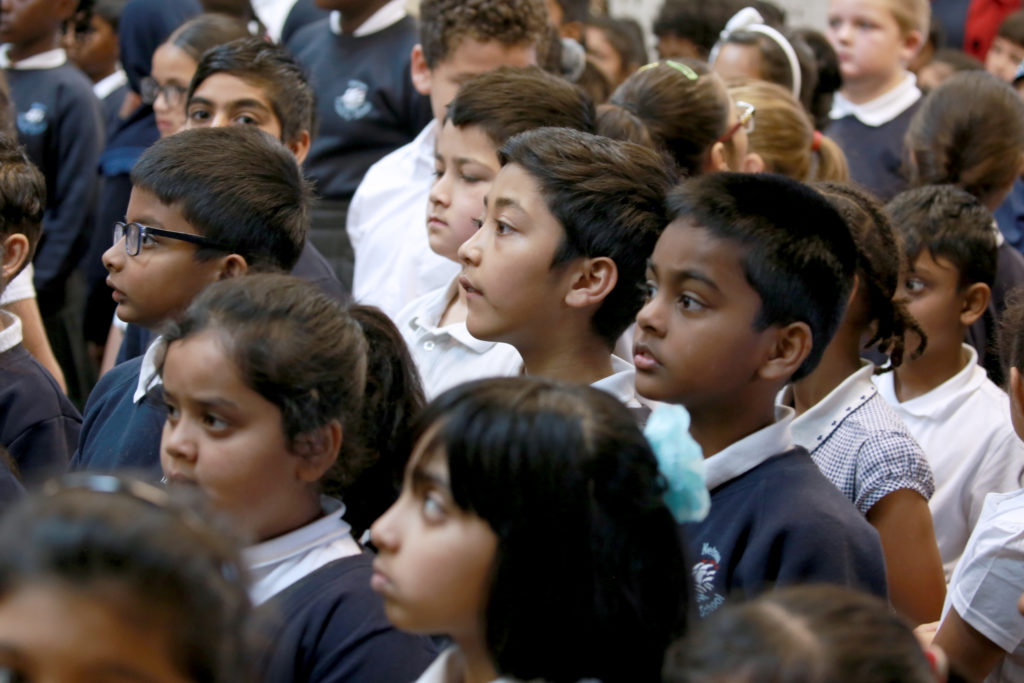
A caring heart
The quiet enthusiasm that Br Peter exudes is inspirational in itself. There are, however, those teachers, badly paid and over-stretched, who lack facilities and have any enthusiasm beaten out of them by the system. How can they imbue their pupils with self-confidence and belief?
Br Peter suggests, “It is our duty to do it. All of us are created for a reason. We are doing this to give a service.” His smile broadens. “A blessing.”
He warns, “If you are only guided by rewards, they may not happen and you will end up disappointed. I have a principle that the only one who sees what you are doing is God and if you do what you should, then God will bless you. The workload—it is a lot. The most important thing is it is a vocation, a calling, like being a religious. Then things will come. We should ask ourselves ‘Why are we doing what we are doing?’ Once we have the right vision, that will guide us.”
He believes in getting out of his comfort zone and facing and addressing challenges, achieving solutions with teamwork. Above all, he says, “You have to have that caring heart.”
At the time Br Peter received his 2019 award, he talked with world leaders. After the challenges of the past two years, what would he say to them now— what would he ask that they do for our children’s future?
Challenges can only be addressed if we educate the future generation to be co-creators, to be happy, and to make others happy. Then the world will be a peaceful place
There was no pause for thought. “Prioritise education and give it the support it requires,” he said. For Africa and other developing areas of the world, that support needs depth.
Education, he stressed, is not just about access, not just about Newton’s theory and trigonometry. It must be holistic and grounded in faith. Children must learn to be compassionate and caring, seeing themselves as part of the larger community.
He said, “If they are given support you will see them also become leaders able to deal with the challenges—so many challenges, such as the pandemic, climate change, increasing populations. These can only be addressed if we educate the future generation to be co-creators, to be happy, and to make others happy. Then you will see them shining like stars—and the world will be a peaceful place.”
| Dates To Remember |
|
February 1 – Blessed Benedict Daswa 2 – World Day of Prayer for Consecrated Life 4 – International Day of Human Fraternity 6 – International Day of Zero Tolerance of Female Genital Mutilation 8 – International Day of Prayer and Awareness against Human Trafficking 11 – International Day of Women and Girls in Science 11 – World Day of the Sick 13 – World Radio Day 20 – World Day of Social Justice 21 – International Mother Language Day March 1 – Zero Discrimination Day 2 – Ash Wednesday 3 – World Wildlife Day 8 – International Women’s Day 15 – St Daniel Comboni’s Birthday 20 – International Day of Happiness 21 – International Day for the Elimination of Racial Discrimination 21 – SA Human Rights Day 22 – World Water Day 24 – World Tuberculosis Day 24 – International Day for the Right to the Truth concerning Gross Human Rights Violations and for the Dignity of Victims 25 – International Day of Remembrance of the Victims of Slavery and the Transatlantic Slave Trade |
